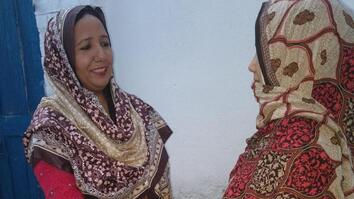PESHAWAR -- Pakistani authorities have laid the foundation stone for a new residential colony for the Christian community at Landi Kotal, fulfilling a long-time request of the minority group in Khyber Agency.
After the minority endured persecution and the wrath of militants for years, security in the Federally Administered Tribal Agencies (FATA) has improved enough to permit infrastructure development such as health, educational and residential projects, local authorities say.
The July 14 inauguration of a residential colony for the Christian community is seen as a milestone achievement for the government and as a pathway leading to the empowerment of marginalised communities living in tribal areas.
Christians account for about 1.6% (2.5 million people) of the Pakistani population, estimated the Financial Times in 2016.
A new beginning
Residents of Khyber Agency say they are hopeful for a new beginning initiated by infrastructure development.
"Unfortunately, minorities who have been living in FATA for generations were not allowed to purchase property because no law entitled them to enter into a transfer-sale deed," said Malik Arshad Masih, a resident of Landi Kotal, Lungi Holder and central executive member of Pakistan Minority Alliance (PMA).
The role of a Lungi Holder is to mediate between FATA tribes and the state regarding domiciles, national identification cards, passports and education documents. In July 2015, for the first time, the Khyber Agency political administration appointed four non-Muslim Lungi Holders.
"The reason for minorities' predicament was their inability to obtain the domicile certificate, which is a prerequisite to purchase land and claim ownership rights," Masih told Pakistan Forward.
The Khyber Agency political administration's decision in April 2015 to issue minorities domicile certificates changed all that.
"The political administration's decision to issue domicile certificates to minorities not only makes them registered residents of tribal areas but enables them to purchase property," Masih said.
"Now we will be able to change our socio-economic conditions," he said.
Claiming ownership, community development
"Minority community members who have lived in tribal areas since the creation of Pakistan have started considering themselves true citizens having all rights enshrined in the constitution of Pakistan," Haroon Sarab Dayal of Peshawar, chairman of the All Pakistan Hindu Rights Movement, told Pakistan Forward.
Regarding construction of the new Christian Colony, he said, "It is a historic moment that minorities of Khyber Agency, who have long demanded the residential rights enjoyed by [Muslims living in FATA], were provided plots to built houses."
Though minorities now may purchase land in tribal areas, the government should ensure land reforms, he said.
"Land reforms have been introduced in some areas of Landi Kotal and in Miranshah, but the expectations and aspirations of more than 50,000 minority members living in the 2,600km-long tribal belt can be met only if they receive rights equal to those of other residents of FATA," Sarab Dayal said.
A residential area for Christians already exists in Landi Kotal, but this is the first time in Khyber Agency they will own the land.
"The new Christian Colony will be completed at an estimated cost of Rs. 33 million ($313,000) on a plot of of eight kanals (one acre), where 21 houses will be built," Dawn tribal journalist Ibrahim Shinwari told Pakistan Forward. "The price of the land will be shared by the government and owners."
Each of the 21 prospective owners is expected to contribute Rs. 350,000 ($3,320).
"The inauguration of the Christian Colony in Landi Kotal will pave the way for [minorities'] further emancipation, encouraging them to play a constructive role in development of FATA," said Shinwari.
Hope for a better future
Minority groups who have been residing in Khyber Agency since pre-partition days are appreciative of the efforts spearheaded by the political administration, said Samson Jacob, provincial organiser of the PMA's Khyber Pakhtunkhwa chapter.
Constructing the Christian Colony is a leap in bestowing rights to minorities, he said, adding that it will help guarantee better prospects for minorities in the future and give them a platform from which to pursue their interests in an equality based atmosphere.
The colony represents "a beacon of hope for our better future", said Samson.
"Equality of status and provision of due rights to the minority community were among our long standing demands and the most important ones," he said. "We are expecting a positive change in our social status after becoming registered residents of Khyber Agency."

![Khyber Agency Political Agent Khalid Mehmood (3rd from right) unveils a plaque for the new Christian Colony in Landi Kotal July 14. [Muhammad Shakil]](/cnmi_pf/images/2017/07/21/8863-colony_picture-585_329.jpg)






